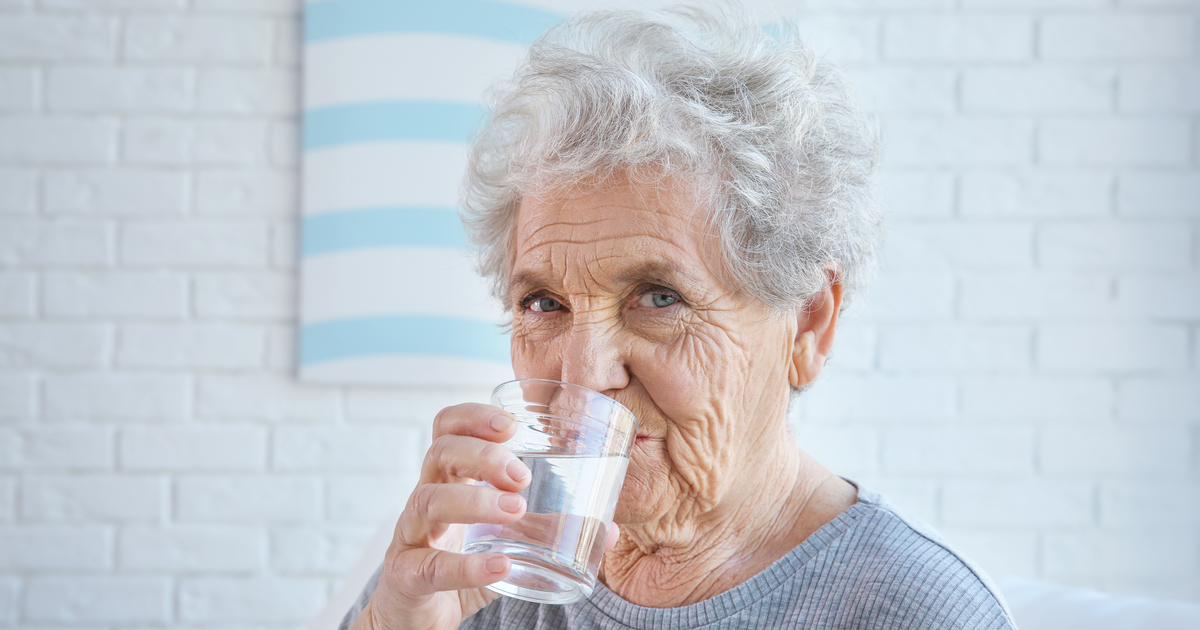The most common type of bacterial infection found in the elderly population is a urinary tract infection (UTI). In fact, over 50% of all elderly women will get a UTI in their lifetime, although older men are also at risk. UTIs are not only uncomfortable, left untreated they can cause kidney failure and bloodstream infections. Because of those potential risks, if you’re currently caring for an aging in place loved one, learning how to recognize and prevent UTIs in seniors is important. What follows are some UTI-prevention habits that every senior should practice.
UTI Risk Factors
Most older people have weakened immune systems that make their bodies more susceptible to getting a bacterial infection like a UTI. In addition, here are some other common UTI risk factors:
- Being sexually active
- Going through menopause
- Incontinence and poor hygiene habits after toileting
- Diabetes
- Recently having a urinary catheter
- Kidney stones
Classic Signs Your Senior Has a UTI
If you are caring for an older individual whose immune system is still relatively strong, here are some of the classic UTI signs to watch for:
- Frequent or urgent need to urinate
- Strong or foul-smelling urine
- Pain or burning while urinating
- Cloudy, bloody or dark urine
- Feeling pressure in the lower pelvic region
- Night chills or sweats
- For women, pain in the center of the pelvis
Sometimes a senior may not be able to communicate that they are experiencing these symptoms, and it’s important to also remember that in someone with a weakened immune system these signs may not present at all. If you even suspect that your loved one might have a UTI, it’s important to get them checked out by a doctor as soon as possible.
UTI-Prevention Strategies for Seniors
Fortunately, it’s easy to lower an elderly person’s risk for getting a UTI by convincing them to practice these habits as a part of an effective UTI-prevention strategy:
Drink lots of liquids
Drinking plenty of fluids like water every day helps dilute urine and promote more frequent urination, which then flushes bacteria from the urinary tract. Studies have found that increasing daily water intake can reduce a senior’s UTI risk by up to 50%. Cranberry juice may also lower one’s UTI risk, but caffeine and alcohol should be limited or avoided altogether for the opposite reason.
Wipe correctly
After urinating or moving her bowels, it’s important for a woman to wipe her pelvic area from front to back. That helps prevent the spreading of bacteria from the anal region to the vagina and urethra.
Empty the bladder frequently
Encourage your loved one to urinate every 2 to 3 hours to keep the urinary tract flushed. Explain to them that it’s best to urinate before their bladder feels full because the longer urine remains in there, the more likely bacteria are to multiply.
Keep the genital area clean
This is notably important for someone with incontinence because keeping the genital area clean will lower the number of bacteria that are present, reducing the likelihood for organisms to enter the urethra and bladder.
Post-intercourse precautions
For seniors that are still sexually active, it’s important to drink a full glass of water right after intercourse to keep bacteria flushed from their bodies. Women especially should also try to urinate right after vaginal intercourse to eliminate bacteria that may have entered the bladder from the genital area and anus.
Cotton underwear
Cotton material breathes well which helps lower the infection risk, and underwear should always be changed out at least once a day.
Reliable In-Home Caregivers that Understand UTI Prevention
Helping an aging in place senior stay UTI-free can be challenging when you’re managing your own household or live far away. When you need a hand, contact Dependable Senior Care. As a fully licensed and insured home care agency, our experienced caregivers are highly adept at identifying UTI symptoms and encouraging seniors to practice UTI-prevention habits so they can continue aging comfortably in place right where they want to be.
While in the home, our carefully screened aides can also perform family trusted services like light housekeeping, personal hygiene, meals, food shopping, medication reminders, transportation and companionship. And, all our dependable services can be individually combined into an affordable package that’ll restore your peace of mind! To learn more about Dependable Senior Care now, or to schedule a FREE, in-home assessment for your senior today, please call or visit us online.

